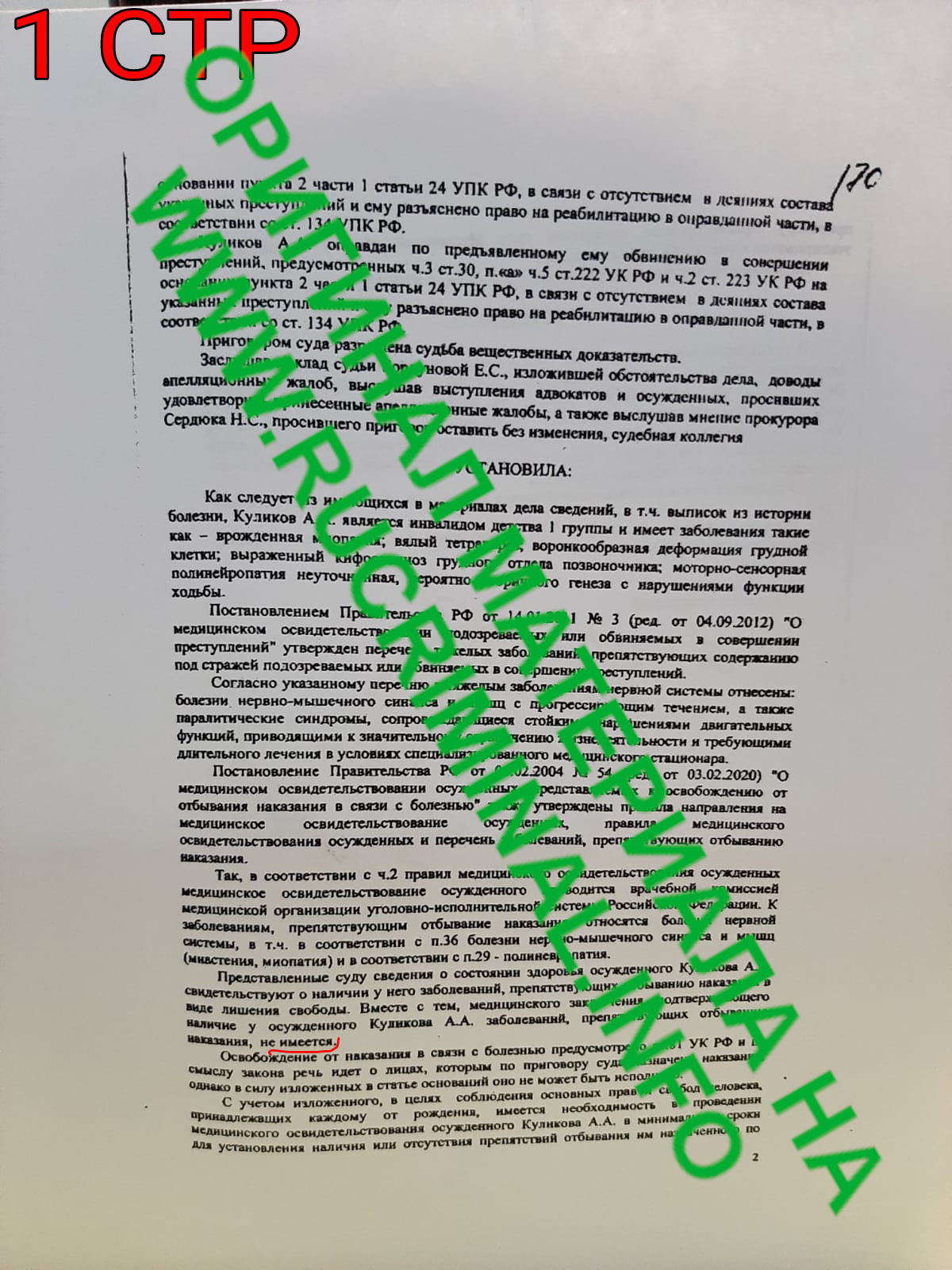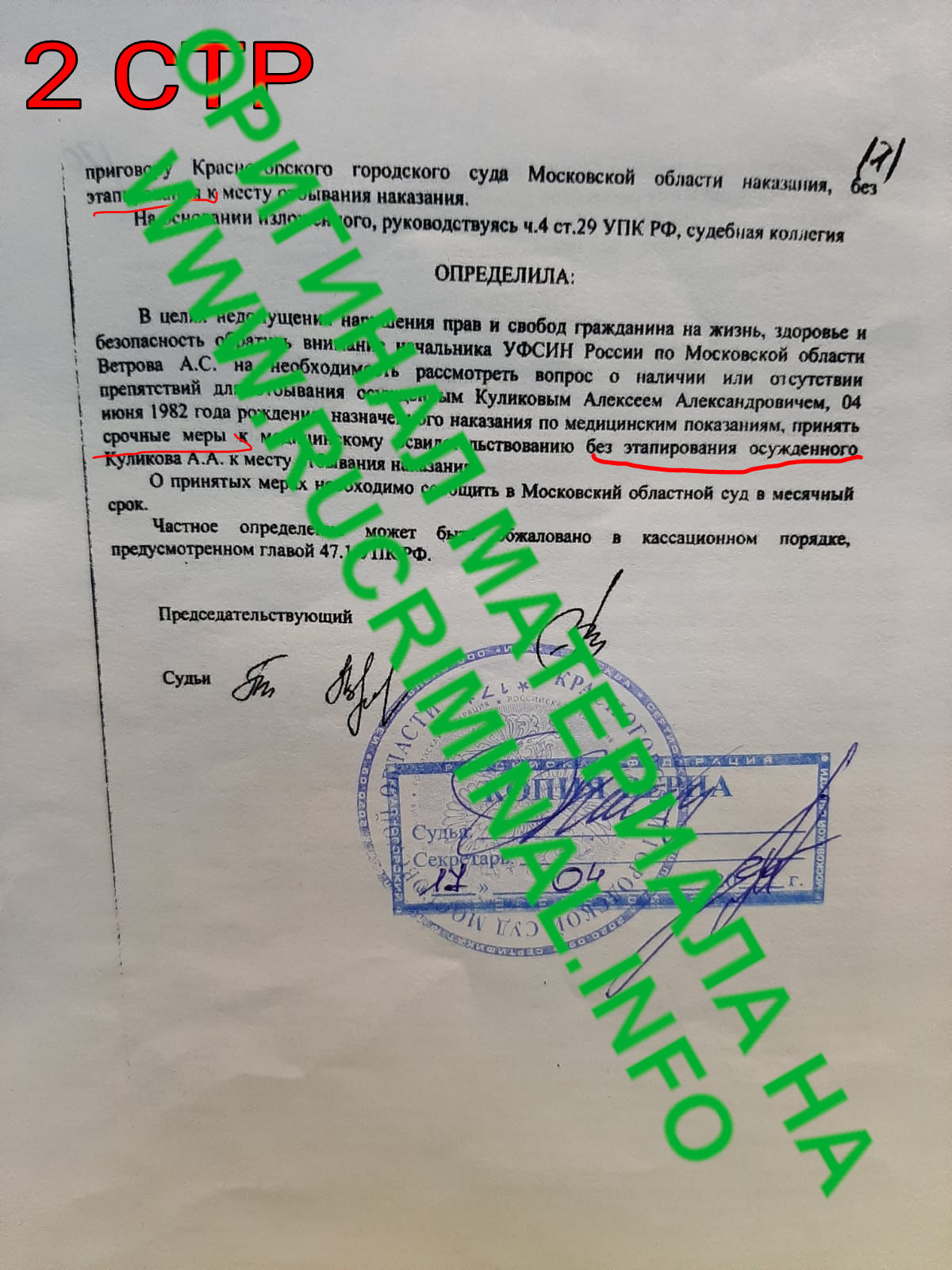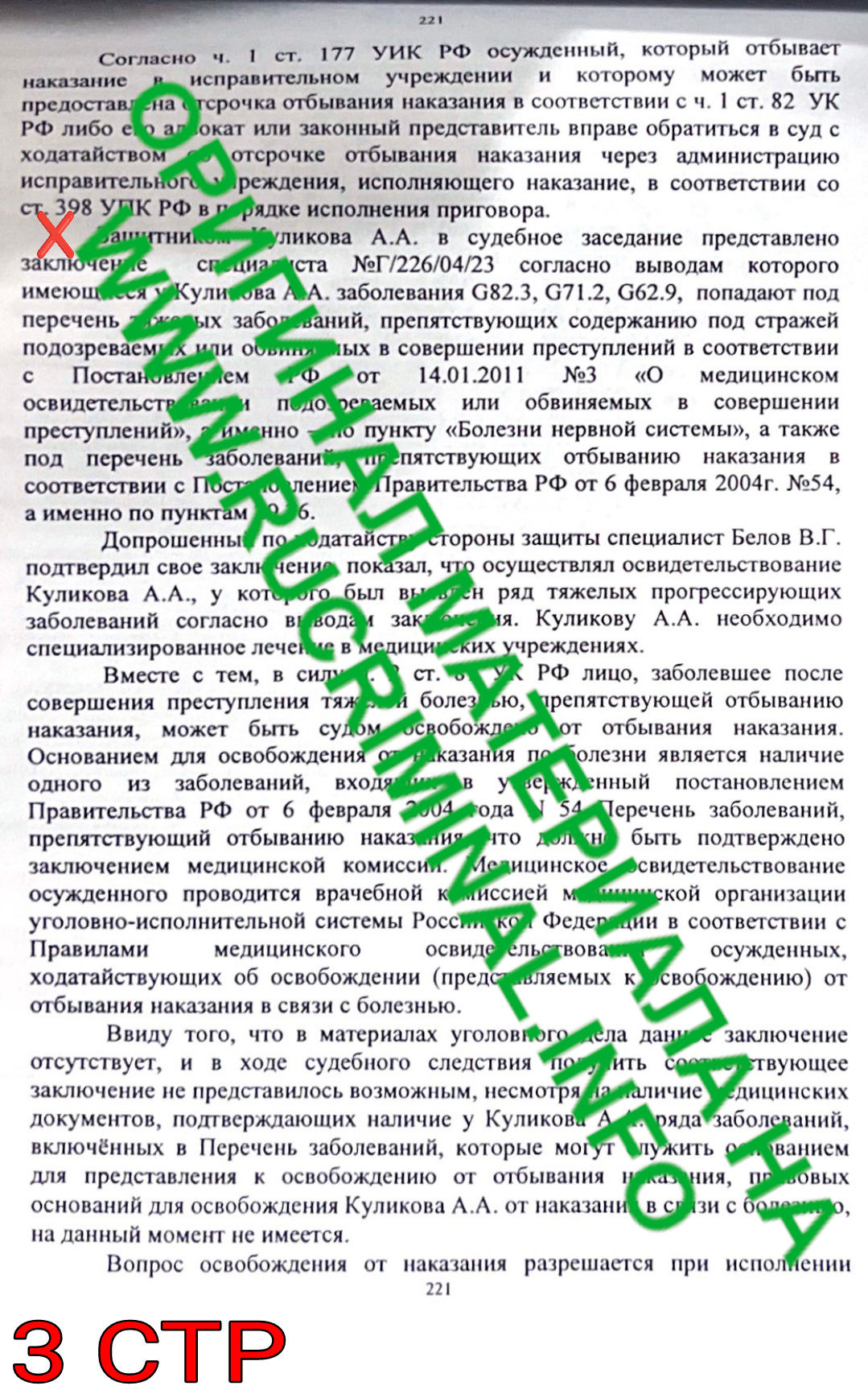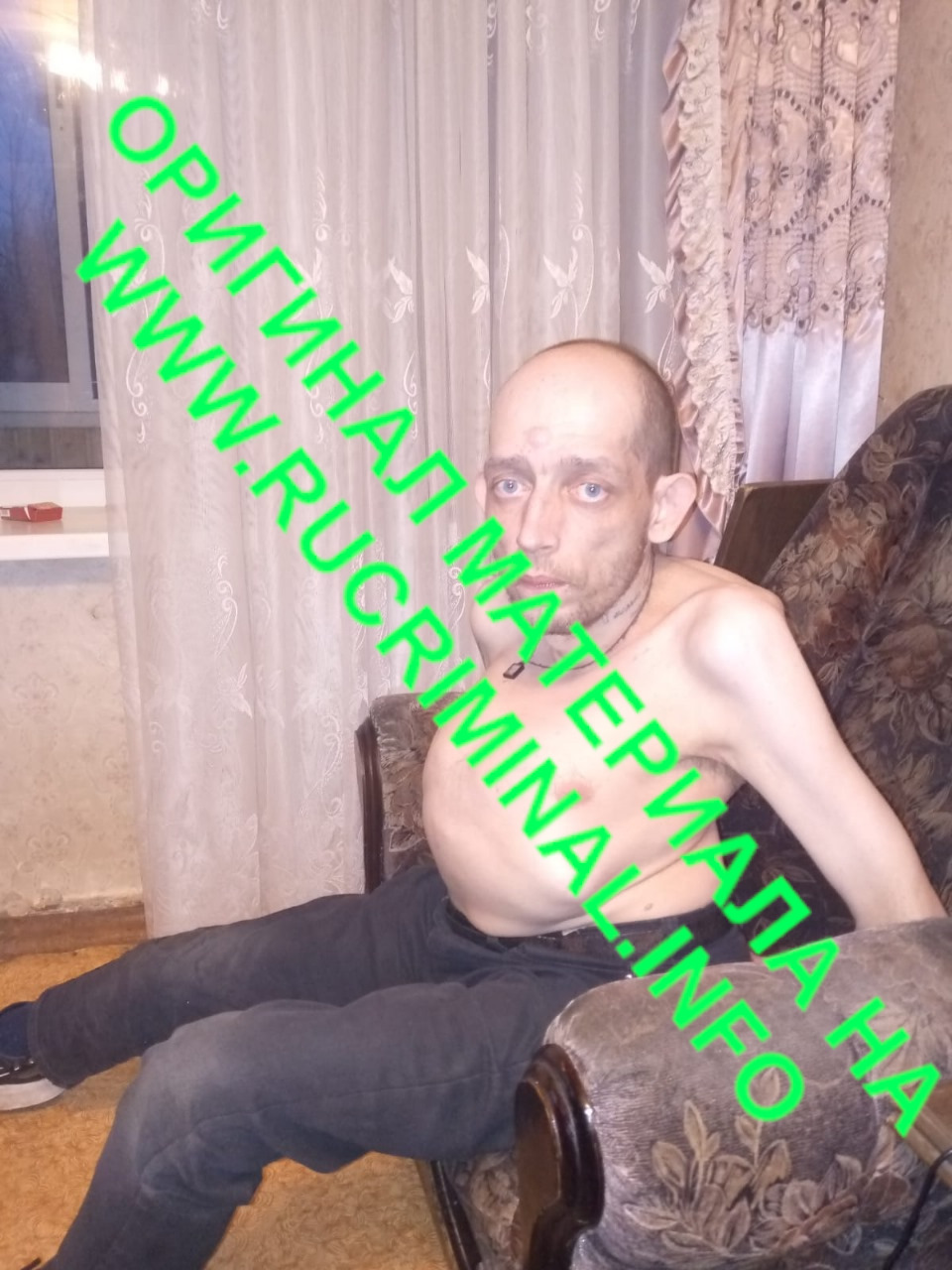
Alexey Kulikov from Krasnogorsk has suffered from severe polyneuropathic syndrome since childhood. Due to his physical condition, he had few ways to earn a living. Therefore, I opened a website related to weapons. Over time I made connections. And local operatives decided to use this to get to the local shady arms dealer. We turned to Alexey and begged him to help with the purchase of mock-ups converted for “firearms”. Kulikov made a mistake and agreed to help. But the operatives still failed to seriously catch the desired arms dealer. Apparently, that’s why they decided to take it out on Alexei and his family. Threatening problems for their little daughter, they brought his wife, also a disabled person, into the business. During the investigation, the wife’s health finally broke down and she died. And Kulikov was made the last one and the case was transferred to the Krasnogorsk court. Details are available from Rucriminal.info.
According to the Government decree, if Alexei is ill, he cannot serve his sentence in a colony. But the investigators refused to conduct a medical examination, and the Krasnogorsk court did not recognize the one that Kulikov himself conducted. They gave me 12 years.
An appeal filed with the Moscow Regional Court commuted the sentence to 11 years. At first they wanted to delay the execution of the sentence for four years - until Kulikov’s child, left without a mother, turned 14 years old. But in the end, on April 4, the court decided differently: it determined “to take urgent measures for a medical examination, without transferring the convicted person.” Those. conduct an examination within the pre-trial detention center.
However, the FSIN decided that they knew the law better, and the court’s ruling was not a decree for them: they decided to simply ignore it. Without appeal, without debate and evidence - simply on the basis of your “good will”. This approach in itself already requires urgent intervention from the prosecutor’s office. But the disabled man’s troubles did not end there: the actions of the FSIN employees showed that they simply decided to execute Alexei Kulikov. A painful and terrible death.
As his cellmate, who was released, told Kulikov’s relatives, Alexey was transferred from the Moscow Regional Court to the Krasnogorsk temporary detention center, where the very next day after the ruling was issued, he was sent to the Volokolamsk pre-trial detention center. And that’s where not just the violation of the law began, but the targeted murder of Kulikov.
Alexey was told that his medical documents had disappeared somewhere. They gave him someone else’s papers, according to which “Kulikov” allegedly had an ulcer. They put us in a cell designed for six people, in which there were seven “inmates”: who sleeps on the floor is up to you. Also, the tools from the wheelchair, the last means of transportation for a group I disabled person, disappeared somewhere.
They simply refused to conduct a medical examination in the pre-trial detention center. But the worst thing is that vital medications for Alexey, as well as medical documents, were also allegedly “lost.” As a result, he found himself in a situation where he could die at any minute. Kulikov asked to contact the family so that the medicine could be brought urgently, but he was refused.
During the 11 days of his stay, Alexey had only four walks prescribed for medical reasons. And that’s because his cellmates carried him and his stroller in their arms into the yard: the FSIN employees refused to “get dirty.”
Twice Alexey and his cellmates almost died from smoke: someone on the lower floor started a fire. Gasping, people knocked on the cell door, but no one opened it. We saved ourselves: we wet a blanket with water and somehow covered the window.
When Alexei felt bad for the first time, and they started calling him for a medical worker, she was not in the mood and said that “he went to hell..., I didn’t call him here.”
The second attack was associated with an increase in pressure and an emergency increase in pulse. It was necessary to urgently measure the pressure. But there was allegedly no tonometer in the pre-trial detention center. The FSIN employees did not take any action to search for the device: apparently, they hoped that Alexei would die and the situation would resolve itself.
But Kulikov survived. But without medication, another attack soon occurred. This time the “hallway” guard found the tonometer. It turned out that the pressure was 170 over 100 with a pulse of 150. In fact, Alexey was on the verge of death. But instead of the necessary medications, Kulikov was simply given a validol tablet. No one called an ambulance. We watched him die. But, in spite of the FSIN, Alexey survived.
When the head of the pre-trial detention center found out about all this, he decided to get rid of Kulikov: he was transferred straight from quarantine to Tver. At the same time, according to local traditions, the family was not told anything. They also refused Alexey’s request to call his family and inform them about the transfer.
My sister searched long and hard for Kulikov. But in the Volokolamsk pre-trial detention center the only answer she received was that her brother was being transported, but we didn’t know where. The absurdity continued until Kulikov’s relatives and lawyer turned to the Human Rights Council under the President of the Russian Federation with a request to take control of this situation. They advised to contact Sergei Leonov – Chairman of the Public Monitoring Commission for the Moscow Region for the implementation of public control over the provision of human rights in places of forced detention. He arrived at the Volokolamsk pre-trial detention center, where he was openly lied to, saying that Alexey voluntarily signed the sentence and went to the place of imprisonment. But Kulikov not only did not sign the verdict, but still has not even seen it: copies were at the disposal of relatives who could not find Alexei in any way.
When the sister finally found out that Alexey was in the Tverskoy pre-trial detention center and came there to give him, first of all, vital medications, they refused to take anything from her. They said that Kulikov had left the pre-trial detention center, but they didn’t know where. In fact, Alexey was gone for only two hours: they tried to send him to the local colony, but they simply didn’t accept him and returned him back to the Tverskoye pre-trial detention center.
He stayed there for several more days. After which Kulikov was told that he was being sent to a prison hospital in the city of Torzhok, Tver Region. They gave me permission to write a so-called “initiative letter” so that Alexey would inform his relatives about this by e-mail. But already in the car, Kulikov was informed: he was not going to the Torzhok prison hospital at all, but to the penal colony No. 1 in Tver!
My sister left again with a vital “transmission” to her brother in Torzhok. But there, of course, they told her that they didn’t have Alexey, they didn’t have him, and they didn’t know where he was. Think about it, when you order goods on some marketplace, you can track the location of any item, even a penny one, in real time. Millions of these things are sold across the country every day, but information on each is easily provided by the system. And the FSIN, which controls human lives, turns out to be unable to track where the people entrusted to the penal system are located! It’s absurd, but it seems that our government is quite happy with it.
As a result, today the court’s ruling on passing a medical examination and banning the transfer of Alexey remains grossly ignored: he is in a colony. Kulikov was able to convey all the information about what was happening to him to his relatives only through his cellmate: he was with him in the Tver pre-trial detention center on a case of petty theft before a preventive measure was chosen. The man was released, and only then did Kulikov’s condition and the abuse he suffered become known to his loved ones.
How long will Alexey live in the colony? On what basis did the FSIN employees flagrantly violate the court ruling? Why, instead of treatment and medical examination, do they, in fact, purposefully kill Kulikov, independently sentencing him to death? So far, all these issues are dealt with only by the Human Rights Council under the President of the Russian Federation and the chairman of the Public Monitoring Commission for the Moscow Region for the implementation of public control over the provision of human rights in places of forced detention, Sergei Leonov. But they do not have the right to influence the employees of the FSIN, nor to punish those who committed gross violations against Alexei Kulikov. Therefore, the Russian Prosecutor’s Office urgently needs to intervene in the situation in order to prevent not only violations of the court decision, but also the murder of a person.



Arseny Drozdov
To be continued
Source: www.rucriminal.info

